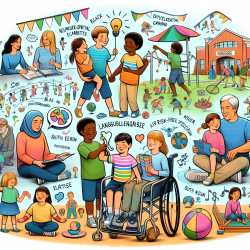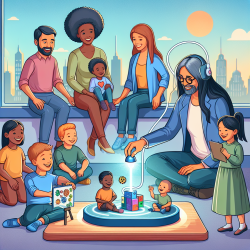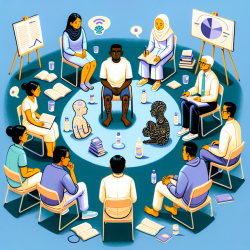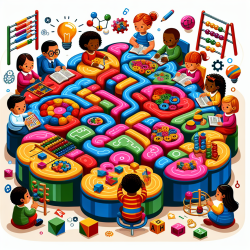The benefits of bilingualism are well-documented, not only for neurotypical (NT) children but also for those with neurodevelopmental disabilities (NDDs). The recent study, "Parental Survey on Spanish-English Bilingualism in Neurotypical Development and Neurodevelopmental Disabilities in the United States," sheds light on how bilingualism is perceived and supported in Hispanic families with children who have NDDs.
Key findings from the study reveal that while bilingualism is a desired goal for 95% of families, children with NDDs are less likely to be raised bilingually compared to their NT peers. This disparity is influenced by a lack of community support and professional recommendations against bilingualism for children with NDDs. Nearly 40% of NDD children only speak English, compared to just 5% in the NT group. Moreover, 47.6% of parents of NDD children do not feel supported by the community in raising bilingual children, a stark contrast to the 7.9% in the NT group.
As practitioners, it's crucial to understand the benefits of bilingualism for children with NDDs and advocate for inclusive policies that support dual-language programs. Here are some actionable steps based on the study's outcomes:
- Educate Yourself and Your Team: Familiarize yourself with the cognitive and social benefits of bilingualism for children with NDDs. Attend conferences, webinars, and read publications that focus on bilingualism in special education.
- Promote Bilingualism in Therapy: Encourage bilingual language development in your therapy sessions. Utilize bilingual materials and resources, and ensure your therapy staff is equipped to support bilingual children.
- Advocate for Policy Changes: Work with school administrators to implement policies that support dual-language programs. Highlight the benefits of bilingualism to parents and community members to build a supportive environment.
- Engage with Parents: Communicate with parents about the benefits of bilingualism and address any concerns they may have. Provide resources and strategies to help them support their child's bilingual development at home.
Understanding and implementing these strategies can significantly impact the bilingual development of children with NDDs, helping them achieve better cognitive, social, and emotional outcomes.
To read the original research paper, please follow this link: Parental Survey on Spanish-English Bilingualism in Neurotypical Development and Neurodevelopmental Disabilities in the United States.










